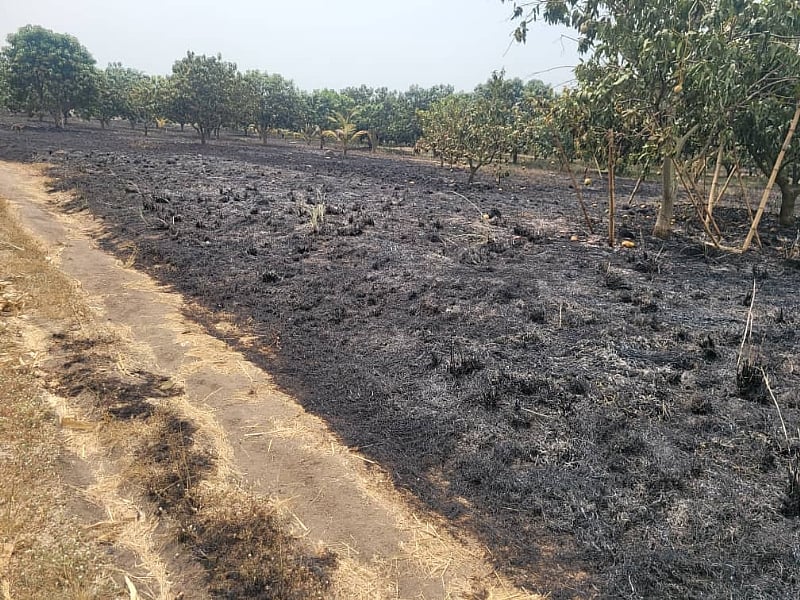A devastating fire swept through a mango farm in Okwenya, a suburb of Somanya in Ghana’s Eastern Region, consuming approximately 12 acres of the 25-acre property. The fire, which caused losses exceeding GHc100,000, originated from a seemingly innocuous act: the burning of a dead snake. The farm owner, also operating a piggery on the same land, had disposed of the snake by burning it near a mixture of pig waste and sawdust. Unknowingly, this created a smoldering fire beneath the sawdust, which, fueled by dry weeds and the prevailing harmattan conditions, escalated into a raging inferno that engulfed a significant portion of the mango orchard. Fortunately, the piggery remained unscathed, and the swift response of the Ghana National Fire Service contained the blaze, saving the remaining 13 acres of the farm.
The incident underscores the critical need for fire safety awareness and preventative measures, particularly during the dry harmattan season. The Somanya Fire Service, having received the distress call and successfully extinguished the fire, emphasized the importance of exercising extreme caution when engaging in any fire-related activities. The seemingly harmless act of burning a snake, compounded by the dry and windy conditions, highlights how quickly a small fire can escalate into a destructive conflagration. The farmer’s assumption that the burnt snake posed no further risk proved tragically incorrect, as the smoldering embers ignited the surrounding dry vegetation, rapidly spreading the fire beyond control.
The harmattan, a dry, dusty wind prevalent in West Africa, significantly contributed to the fire’s rapid spread. The dry vegetation, parched by the harmattan, provided ample fuel for the flames, enabling the fire to quickly advance through the mango farm. This incident serves as a stark reminder of the heightened fire risk during this period, necessitating greater vigilance and proactive fire prevention measures. The combination of dry vegetation, strong winds, and human activity creates a volatile environment where fires can easily ignite and spread rapidly, posing a significant threat to lives, property, and livelihoods.
The farmer’s attempts to control the fire proved futile, highlighting the limitations of individual efforts in containing large-scale fires, especially under challenging weather conditions. The rapid spread of the fire overwhelmed their attempts to extinguish it, eventually forcing them to call for professional assistance. This underscores the crucial role of the Ghana National Fire Service in responding to such emergencies and preventing further damage. Their swift response and effective fire-fighting techniques were instrumental in containing the blaze and saving a portion of the mango farm.
This incident carries a valuable lesson about fire safety and prevention, particularly in rural agricultural settings. The practice of burning debris, even seemingly harmless materials like a dead snake, carries inherent risks, especially during dry seasons. It is crucial to ensure complete extinguishment of any fire and to avoid burning materials near flammable vegetation. Creating fire belts, as recommended by the fire service, can act as effective barriers, preventing fires from spreading between farms and minimizing potential damage.
The incident in Okwenya serves as a cautionary tale for farmers and communities across the region. It reinforces the importance of adhering to fire safety practices, particularly during the dry harmattan season. Creating fire belts, clearing dry vegetation around properties, and exercising extreme caution when handling fire are essential preventative measures. By adopting these practices, communities can significantly reduce the risk of devastating fires and protect their valuable resources. The cost of neglecting these precautions, as evident in the Okwenya incident, can be substantial, both economically and environmentally.


